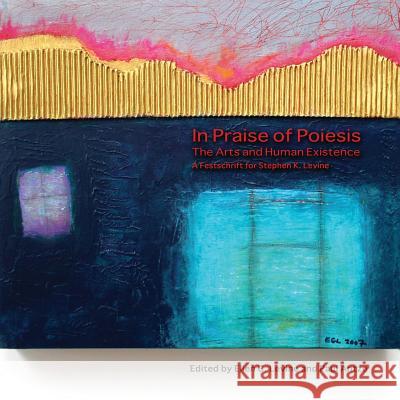In Praise of Poiesis: The Arts and Human Existence » książka
In Praise of Poiesis: The Arts and Human Existence
ISBN-13: 9780968533062 / Angielski / Miękka / 2008 / 176 str.
This volume is offered as a gift to the life and work of Stephen K. Levine and to the thinkers and the practitioners in the field. In the spirit of Levine's thinking, it offers a lively array of ideas about the current state of work in the expressive arts: therapy, coaching, education, consulting, and social change. This collection of writings, poems and visual images honours the thinking and the work of Stephen K. Levine, philosopher of the field of expressive arts therapy. Levine's work in this field over the past 25 years has focused on the central role of art and art-making in human experience, calling attention to the uniquely human act of shaping and its embodiment in artistic activity. Levine places the concept of poiesis at the center of his thinking and, by doing so, provides an important guidepost for practitioners of therapy, education and social change work through the arts. His ideas have influenced a whole generation of teachers and practitioners of expressive arts therapy and this volume is a testament to that influence. Levine has issued a series of challenges to the authors contained in this volume. Each writer, student or colleague, has responded from his or her own standpoint. In the longer articles, the writers were asked to address ideas at the forefront of their thinking in these times. For the medium-length pieces, they were summoned to respond to a concern: can the expressive arts move from its original focus on psychological disorder and its treatment to a broader social and political perspective? Finally, in the short responses, the writers were asked to consider what new directions are needed for the field of expressive arts.
This volume is offered as a gift to the life and work of Stephen K. Levine and to the thinkers and the practitioners in the field. In the spirit of Levine’s thinking, it offers a lively array of ideas about the current state of work in the expressive arts: therapy, coaching, education, consulting, and social change. This collection of writings, poems and visual images honours the thinking and the work of Stephen K. Levine, philosopher of the field of expressive arts therapy. Levine’s work in this field over the past 25 years has focused on the central role of art and art-making in human experience, calling attention to the uniquely human act of shaping and its embodiment in artistic activity. Levine places the concept of poiesis at the center of his thinking and, by doing so, provides an important guidepost for practitioners of therapy, education and social change work through the arts. His ideas have influenced a whole generation of teachers and practitioners of expressive arts therapy and this volume is a testament to that influence. Levine has issued a series of challenges to the authors contained in this volume. Each writer, student or colleague, has responded from his or her own standpoint. In the longer articles, the writers were asked to address ideas at the forefront of their thinking in these times. For the medium-length pieces, they were summoned to respond to a concern: can the expressive arts move from its original focus on psychological disorder and its treatment to a broader social and political perspective? Finally, in the short responses, the writers were asked to consider what new directions are needed for the field of expressive arts.











